First ever gender-neutral passport issued in the Netherlands
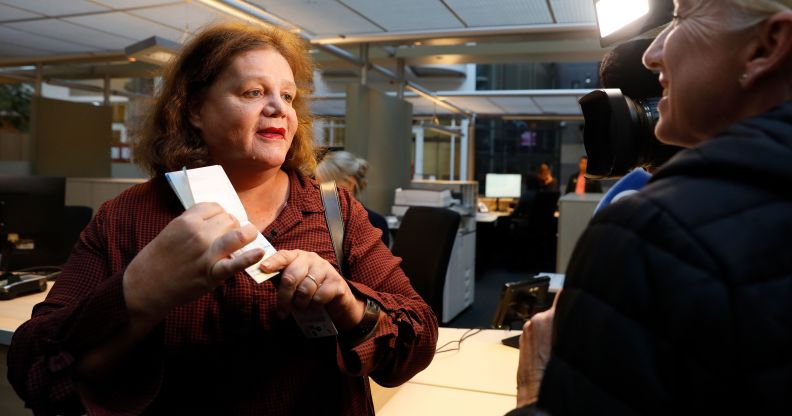
Leonne Zeegers receives her passport (BAS CZERWINSKI/AFP/Getty)
The Netherlands has handed out a gender-neutral passport for the first time.
Leonne Zeegers received the document, which marks her as gender X instead of male or female, after a two-year court battle which she won in May.
The 57-year-old former nurse and sex worker is intersex, had gender confirmation surgery to become a woman in 2001, and now identifies as gender-neutral, using she/her pronouns.
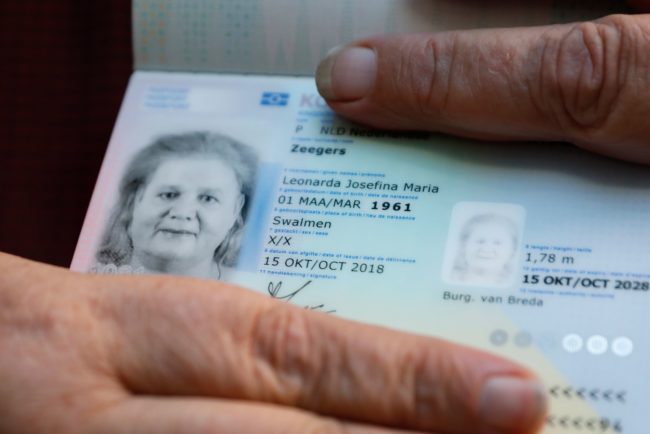
Zeegers’ gender-neutral passport (BAS CZERWINSKI/AFP/Getty)
Other countries including Australia, Denmark, Germany, New Zealand and Pakistan, India, Ireland and Nepal have introduced a third gender on passports or are in the process of doing so, as well as a handful of US states.
However, Zeegers’ successful bid to achieve legal recognition is a one-off for the Netherlands, according to BBC News.
Though campaigners hope that the victory will spur change, the country does not currently give a gender-neutral designation to anyone who asks for it.
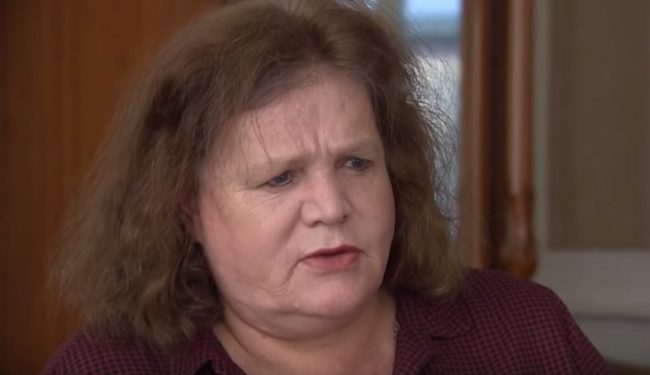
The Netherlands does not currently give a gender-neutral designation to anyone who asks for it (RTL Nieuws/youtube)
Instead, anyone who identifies as non-binary has to go to court if they wish for their country to officially recognise their gender.
Speaking to The Guardian in June, Zeegers explained: “I have lived life on both sides; sometimes I feel as a man, sometimes I feel as a woman, sometimes I don’t feel anything.”
Looking back to her childhood, she said: “My parents didn’t want to operate on me and so they raised me up as Leon, a boy.
“It was no problem because I was a very strong boy, everyone accepted me, and nobody had to look between my legs. Nobody knew then.
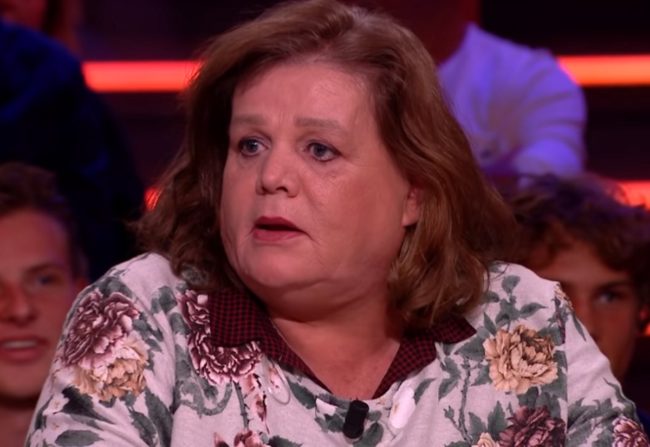
“Sometimes I acted a little bit female but often I was playing the tough guy, I was macho” (RTL Late Night met Twan Huys/youtube)
“Sometimes I acted a little bit female but often I was playing the tough guy, I was macho.”
Going forward, the pioneer wanted the Dutch court system to fully acknowledge the thousands of intersex and non-binary people living in the Netherlands who would embrace the idea of official recognition.
“Gender is everything between the spectrum of male and female and if you want to be a masculine woman, that’s okay,” she added.
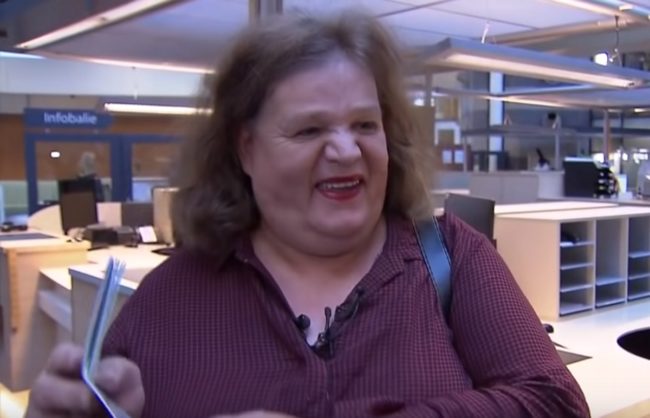
“If you want to be a masculine woman, that’s okay. If you’re a man wanting to wear skirts and makeup, that is okay” (RTL Nieuws/youtube
“If you’re a man wanting to wear skirts and makeup, that is okay. That’s my opinion and I realise not everyone ready is for it.”
In the UK, where the government changed its official guidance to be more accepting of non-binary people in February, non-gendered campaigner Christie Elan-Cane lost their High Court battle to get an ‘X’ category on British passports in June. That ruling hampered hopes that the February decision would be a step towards progress.
Elan-Cane argued that denying the gender-neutral option was “inherently discriminatory,” but High Court judge Mr Justice Jeremy Baker refused to rule the government policy as unlawful.

